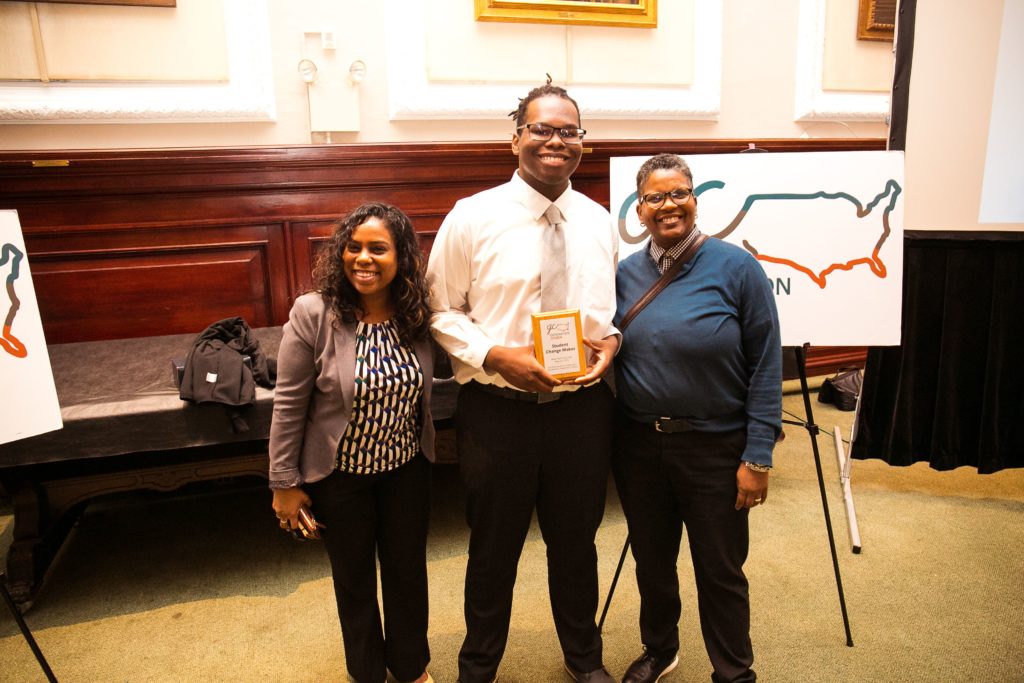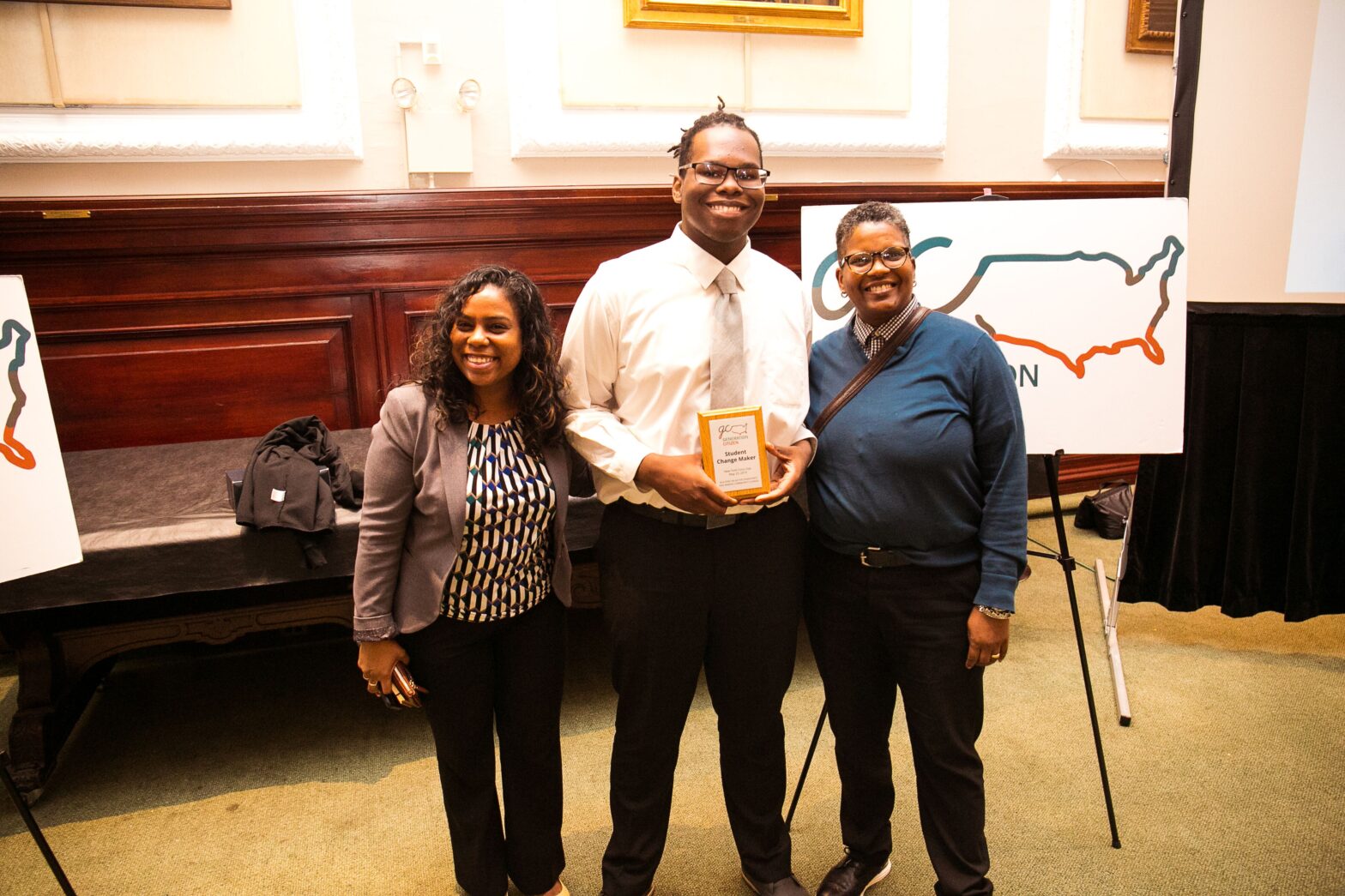
Nizayah Idlet
Queens Preparatory Academy
Queens, NY
Good afternoon Ladies and Gentlemen…
My name is Nizayah Idlet and I’m a Sophomore at Queens Preparatory Academy. Before I begin today I would like to honor the people who have worked with me and helped me progress to this point in my school career. Ms, Ng-A-Qui my Chemistry Teacher, Principal Haywood, Dean Richardson, and my colleagues that have helped build this project Sasmara, Jemaya, Teniya and LeAnna. All the people I have named have inspired me to create this speech today that I present to you.
Being awarded “Student Change Maker” showed me that despite what oppositions and obstacles face me, I as a black student, have a voice. That we have a voice and that we all have a chance to build something great in our lifetime that would benefit other generations to come.
Our class focus for this Generation Citizen project is to add more programs like art, drama, dance and other extracurricular activities that schools other than Queens Preparatory Academy have access to. Reason for us adding these programs is because we feel that we as young individuals we have a better chance to excel in school when these programs are here to motivate us and build our inner creativity.
Participating in this project for Generation Citizen has not only helped me grow as an individual, it also helped me realize that there are issues in the educational system for minorities that we must address.
The issue that I’m going to speak on today is the inequality, biased, and unjust treatment that is experienced by minorities; particularly black students. Recently I was amazed to find out that in the 21st century school systems were being biased and unfair to people of color based on an article in the New York times. In March 18, 2019 “At Stuyvesant High School, out of 895 slots in the freshman class, only seven were offered to black students”(New York Times, Eliza Shapiro). How these children were chosen was not done based on merit but on an unjust and unequal school system. This was frightening to me to think that I may not be given the same opportunity.
This sort of inequality should not occur in this day and age especially after the precedence set by Brown vs Board Education. Brown vs Board Education was a landmark case in 1954 where Thurgood Marshall disagreed upon school segregation. 65 years ago we felt that we broke through the obstacle of racial segregation in schools, but now I realize that it has gotten worse in the most subtle way possible.
My father who is a correctional officer and my grandmother who is a lawyer preach education and how it will grant me the ability to have endless opportunities. I want to go University of Buffalo, a specialized college that I feel will meet my needs as an artist and a student. I have a dream to become the best artist and writer this world ever created. Which is why we are fighting so hard through our Action Project to add more programs to Q.P.A that will help other artists like me while keeping us focused on excelling academically. However, even though I study hard and make sure my grades stay up to parr to achieve that goal, I as a young black man can not see that those opportunities given to my white counterparts will be presented for me. Black students are paralyzed due to the inequality in the education system. This isn’t the American Dream that I was promised. It is the norm in society to go to college and receive an education, but how do you expect us as black students to achieve that goal If you do not give us the same opportunities as white students. As a student, a son, a friend, and a member of the minority I am asking – no begging for a solution to this issue because I’m afraid that if we do not fix this now, soon we are going to regress back as a society.
A solution to our problem is simple. First we need to provide schools like Springfield better access to materials and quality facilities. Smart boards should be up to date in the teachers’ classroom, more textbooks, filtered water fountains, and as we are working on in our Action Project, access programs such as art, dance, drama, etc. We have interviewed principals from other schools that reside in the same building as us about offering a shared art program. However, this must not be just a promise that will not be met by September when we return from our summer break. This is something I want to touch on because if we do not fix this, kids like myself and my colleagues won’t have as much access as kids from specialized high schools and other schools across the city. Not only will this give students like me a better chance to excel but it will give us the same privileges and opportunities as kids from York, Stuyvesant, or Townsend.
All we want is to be accepted into society and given equal rights as students. We don’t want superficial programs that just serve as a purpose to keep us happy for awhile and we don’t want you waving the opportunity of success in our faces only to snatch it away as soon as we reach to grab it. We want equality and change and we want it now.
